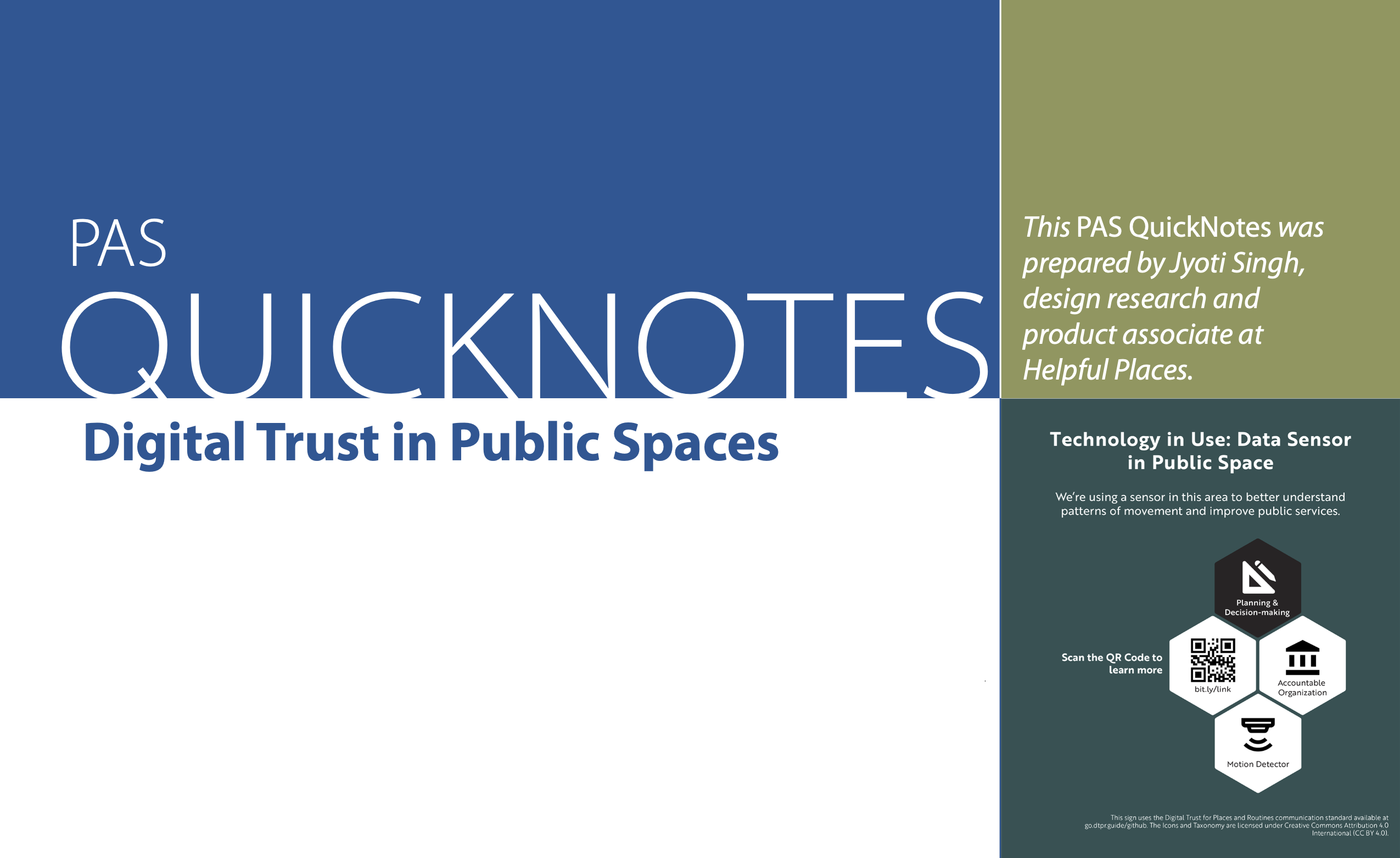
As cities increasingly adopt AI-powered infrastructure—from traffic management to environmental sensors—the need for transparent, inclusive, and community-aligned planning practices is growing. Yet unlike traditional infrastructure, the data-driven technologies shaping our public spaces are often invisible to the public eye and implemented without clear communication.
This disconnect raises serious questions about how digital systems are introduced, monitored, and trusted by communities.
That’s why we’re proud to share that the American Planning Association (APA) has published a new issue of their PAS QuickNotes introducing Digital Trust for Places and Routines (DTPR) as a tool to help planners and cities navigate these challenges with clarity and care.
Previously featured in the APA’s 2023 Trend Report, DTPR is an award-winning, globally recognized open-source communication standard for urban technologies. As highlighted in the brief, DTPR empowers residents to engage with these technologies, not as passive bystanders, but as informed participants with the right to understand and question what’s happening around them.
Planners are on the front lines of shaping how digital infrastructure interacts with the built environment and public life. The APA’s spotlight on DTPR reflects a broader shift in the field: recognizing that digital infrastructure must be planned, communicated, and governed with the same level of transparency, scrutiny, and community input as physical infrastructure.
The QuickNote positions DTPR not just as a communication tool—but as a planning practice that supports:
“As we install more technology in the public realm to track flows and collect data in service of creating smarter, more efficient cities, planners must work to ensure the transparent, secure, and responsible use of that technology to build and protect public trust.”
— Petra Hurtado, PhD, Chief Foresight & Knowledge Officer, APA
As AI becomes increasingly embedded in the everyday functions of urban life, the stakes are higher than ever. Without shared standards, community consultation, or responsible oversight, these systems risk widening inequities and eroding public confidence.
At Helpful Places, we believe DTPR offers cities a practical way to:
It’s a tool—but more importantly, it’s a process for putting people at the centre of public technology.